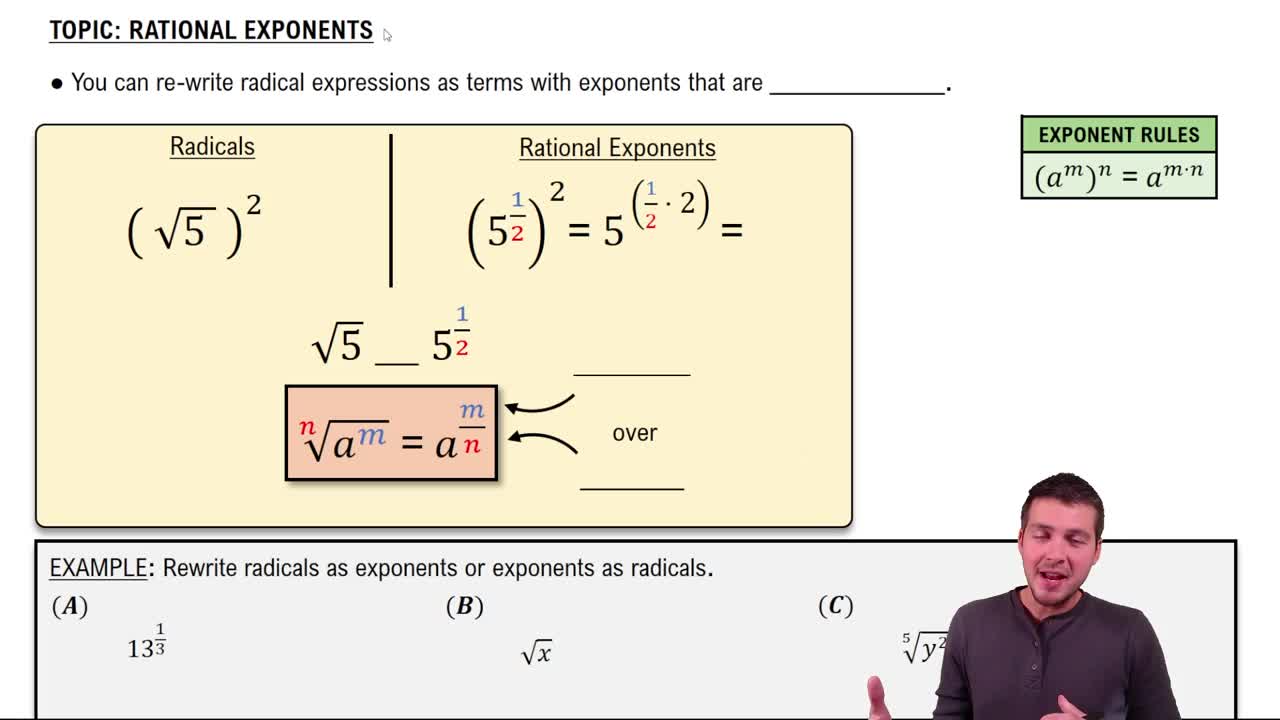Here are the essential concepts you must grasp in order to answer the question correctly.
Natural Logarithm (ln)
The natural logarithm, denoted as 'ln', is the logarithm to the base 'e', where 'e' is approximately equal to 2.71828. It is a fundamental concept in algebra and calculus, particularly in solving equations involving exponential functions. Understanding properties of logarithms, such as ln(a*b) = ln(a) + ln(b) and ln(a^b) = b*ln(a), is essential for manipulating and solving logarithmic equations.
Recommended video:
Properties of Exponents
Exponents represent repeated multiplication of a base number. Key properties include the product of powers (a^m * a^n = a^(m+n)), the power of a power ( (a^m)^n = a^(m*n)), and the power of a product ( (ab)^n = a^n * b^n). These properties are crucial for simplifying expressions and solving equations that involve exponential terms, such as e^x.
Recommended video:
Solving Exponential Equations
Solving exponential equations involves isolating the variable in the exponent. This often requires applying logarithmic functions to both sides of the equation to bring the exponent down. For example, if you have e^x = a, taking the natural logarithm of both sides gives x = ln(a). Mastery of this technique is vital for finding exact solutions in problems involving exponential growth or decay.
Recommended video:
Solving Exponential Equations Using Logs
 Verified step by step guidance
Verified step by step guidance Verified Solution
Verified Solution



 4:46m
4:46m